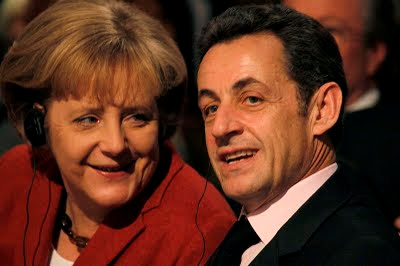
I first read of Gordon G. Chang back in my Taiwan days when various editorialists in the Taipei Times used to trumpet his claim that the government of the People's Republic of China was facing inevitable collapse due to an imminent financial crisis which would be caused by non-performing loans lent out by state-owned banks. After arriving in Nanjing in 2003, I very quickly decided that Chang and others were exaggerating the degree of opposition to the government in mainland China, and that the financial crisis predicted by Chang was unlikely due not least to the financial strength of the government.
However, Chang is now back with fresh predictions of impending doom within the next year:
"Since late September, economic indicators -- electricity consumption, industrial orders, export growth, car sales, property prices, you name it -- are pointing toward either a flatlining or contracting economy. Money started to leave the country in October, and Beijing's foreign reserves have been shrinking since September.
As a result, we will witness either a crash or, more probably, a Japanese-style multi-decade decline."
I agree that all the indicators look bad at the moment, but the fundamentals that have kept the Chinese economy chugging forward - most notably a cheap, well-educated workforce - are still there. Even the relatively pessimistic forecasts show an average per capita GDP growth rate of 5% year-on-year by 2016 - something that is far from a disaster.
More to the point though, Chang's prediction of collapse of the Chinese government within the next year has several conceptual problems that need examining:
- Firstly, if China is due for a "a Japanese-style multi-decade decline", then this does not at all mean that a massive crash of the kind that would shake the government will occur next year.
- Secondly, countries with communist political systems such as mainland China's have weathered very harsh economic crises without the government falling. Cuba and North Korea in the wake of the collapse of the USSR are stark examples of this, but we also see examples in Central Europe - Poland during the 1970's being one.
- Thirdly, even if serious unrest does occur, the Chinese state has overcome such movements in the past and would stand every chance of doing so again. In 1989 there was essentially no limit to the willingness of the Chinese leadership to use force to suppress opposition, even if great bloodshed resulted, and there is every reason to believe that the leaders due to take power next year are of the same temperament.
Put simply, whilst I do think pessimists like Chang may have a point and that at some point their predictions may come true (hence the title) I don't think it will be any time soon, at least not in the next year.
Anyway, now for a G&T and a mince pie to ring in the new year!
[Picture: A photo of only the second public statue of Mao Ze Dong I have seen in seven years on-and-off of travelling in China. Taken during my trip to Chengdu in June, about which more later]















